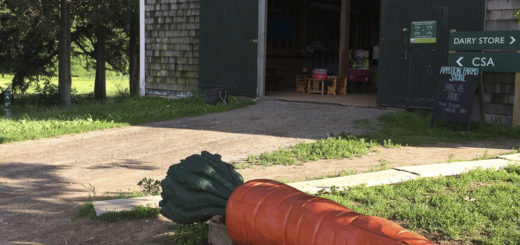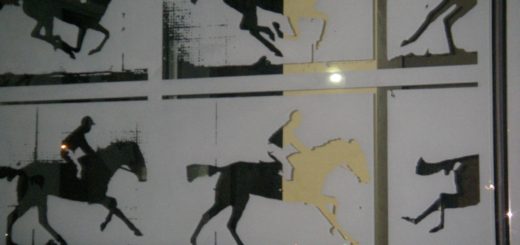The Kill Team @Nashville Film Festival
\
Nashville Film Festival Coverage via Jason Sparks, Our Man in Nashville
Technically speaking, Dan Krauss’s The Kill Team is fictional. It’s the story of Andrew “Briggsy” Briggman (Nat Wolff), an American soldier fighting in the War In Afghanistan during 2009 and 2010, and the moral/ethical dilemma he faces when his commanding officer, Sgt. Deeks (Alexander Skarsgard), encourages him to become part of his platoon’s “kill team”—soldiers who execute unarmed Afghan citizens, and then plant weapons on said Afghans so as to stage an actual fight.
Would that it were more than technically fiction. It is not. It’s a dramatization of events depicted in a 2013 documentary, also called The Kill Team, also directed by Dan Krauss, which recounts the story of Adam Winfield, an American soldier fighting in the War In Afghanistan during 2009 and 2010, and the moral/ethical dilemma he faced when his commanding officer, Sgt. Calvin Gibbs, encouraged him to become part of his platoon’s “kill team”—soldiers who execute unarmed Afghan citizens, and then plant weapons on said Afghans so as to stage an actual fight. The actual Kill Team killed at least three Afghani citizens, and in some cases, kept parts of the corpses as trophies, much like serial killers are known to do. Most of the Kill Team went to prison for their crimes. PFC Stoner was not charged; Sgt. Gibbs will spend the rest of his life in prison.
Watching this film took some intense rhetorical calisthenics; I had to distance myself from the horror of realizing that American soldiers had behaved like this. I did not, and do not, want to believe it. I’ve never served myself, but my Grandfather served in WWII, and his father fought in WWI. I’d rather believe that soldiers representing my country always conduct themselves with morals and integrity.
Regrettably, I am an adult, and a cynical one at that, and I know that my wanting to believe something makes no difference to its veracity. Having cleared that hurdle, I was able to process Kill Team as a film—and it’s an incredible film. For a war film, it’s incredibly up-close; cinematographer Stephane Fontane relies heavily on incredibly tight close-ups and what appears to be hand-held camera work, which has the effect of putting the viewer squarely in the midst of the narrative. It helps foster sympathy—not that sympathy needs fostering—for Briggman, by showing us how immediate the situation is. When he is first concerned about what his fellow soldiers are doing, we are right next to him on his bunk as he composes an email home to his father (Rob Morrow, who has apparently graduated from playing The Young Doctor to playing The Dad.) We are also right next to him as the cameras pans maybe 18 inches, revealing the soldier who is a gung-ho Kill Team member standing right next to Briggman’s bunk. In other words, he may have just read the message, he may know that Briggman is talking—and he may not.
Wolff plays Briggman as a young man, probably fresh out of high school, wanting to be one of the guys but witnessing things that fly in the face of his upbringing—a description that likely describes many a young soldier. He first gets a sense that the rules for this unit are different when he walks in on his mates smoking hashish; shortly thereafter, so does Sgt. Deeks. This is supposed to be the part where Deeks reprimands his men, possibly calls the MPs. Instead, Deeks advises them on the best hash dealers in this part of Afghanistan. He does this with an unflappable calm. He does everything with an unflappable calm, whether serving freshly-grilled steaks and copies of Hustler magazine to his men after a successful mission, or sitting on Briggman’s bunk, once he suspects that Briggman may be informing on him, so as to show Briggman a wooden box full of severed fingers he has kept as souvenirs of his crimes. Skarsgard is absolutely terrifying as Deeks, for the same reason that Brando was an intimidating Don Vito, and Hopkins was an intimidating Dr Lecter—he engages in complete and utter sang-froid at all times. He never shouts or strikes to be intimidating. He doesn’t have to be. It seems the Skarsgard clan are staking out terror as their wheelhouse; his brother Bill, of course, we met in the sewers beneath Derry, Maine, and Alexander will, later this year, take on the role of Randall Flagg in CBS’s miniseries take on The Stand.
Ultimately, Briggman is successfully pressured into taking part in the Kill Team’s activities, which leads to three more scenes of intense, harrowing closeness. When Briggman returns to his barracks after the kill, we are right there with him as his fellow soldiers embrace him and scream happily at him—ignoring how numb he appears to be. Soon after, a soldier mistreated by Briggs earlier in the film has apparently also reported the team’s deeds, as evinced by Briggman and Deeks being arrested at the same time, transported in the same vehicle. We’re also right there as the heretofore unflappable Beeks, smiling like a used-car salesman, nervously laughs and tells the PFC, “you think they’ve got anything? No way…I know their games…I’ve been here before, man!”
The third scene, which ends the film, finds Briggman in a room with officers, lawyers, and his parents, flown to Afghanistan from the US. Everyone in the room is talking—his parents are swearing to his good nature, the officers are restating the charges, the lawyers are engaged in a hybrid of legalese and military jargon. Briggman…isn’t talking, just staring blankly, confusedly, into the middle distance. We cut to black as he opens his mouth. It’s a relief, frankly speaking, because we are finally released from this incredible piece of film and the daunting trick it has pulled—not only showing us an atrocity, but showing us how it could happen, and how it feels.





















